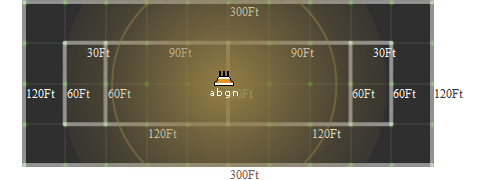802.11n approved; Not 'new' and hardly groundbreaking

The next generation wireless network technology has finally been approved today by the IEEE who ratifies new wireless standards. Even though it has been in "draft" in devices for years, the final standard will still work fully with existing devices.
So - considering that 802.11n is now roughly seven years old, why aren't we as excited as we should be? It isn't a new technology and hasn't been for many years, and the cost of an n-router is considerably more than a standard b/g-router.
In relation to 802.11a/b compared to 802.11n, yes there is a clear difference and those adopting should be very happy. But for the home consumer, such as myself, and the university student - oh yeah, such as myself - I am failed to be overly enthusiastic about the new standard.
I bought a Netgear Wireless-N ADSL2+ DGN2000 router only a few weeks ago to get myself a true Media Center experience. My house, unlike many student houses, is built of brick internally so having wireless signals from the top floor to the other was somewhat difficult.
I quickly realised that it wouldn't give me a full 802.11n experience because the wireless encryption wouldn't support it. It seems even the manufacturers agree, yet I disagree in that I believe it has nothing to do with the fact, at the time, it wasn't a ratified standard. From my router setup I see:
- None - can't be done, the neighbours next door will nick it.
- WEP - only available on b/g wireless modes.
- WPA-PSK - only available on b/g wireless modes.
- WPA2-PSK - only available on b/g wireless modes, or if I have a "high performance client" such as a WN511B I would be able to get maximum performance, ie. 802.11n speeds.
- WPA-802.1x - basically Radius authentication, can't have that.
So even though I select the "up to 270mbps" option in the wireless network section, it will attempt to push to those very high speeds over the network, but will never reach it as the authentication doesn't support it.
Perhaps I've done something hideously wrong and actually it can all work just fine. But somehow, I am not holding my breath for this new technology.
And with universities offering wireless network across campuses and offices, buildings and companies doing the same, will they adopt to 802.11n technology?
Well, probably not just yet, no. Unless they have a wireless infrastructure in place already, I find it difficult to justify the spending of so much money in removing existing 802.11b/g routers, and then buying new 802.11n routers - even though I'd be buying less of them due to the higher ranges.
The draft specification and both the now ratified standard will have backwards compatibility, but it's just not cost effective. If you have no wireless network at your establishment, then go with 802.11n to keep the techies happy. But for my university, switching to 802.11n is unlikely as the money spent will last them. The coverage is good enough and will last for a good few years yet.

For my house, the 802.11n router was the only standard powerful enough to blast signals from one side of my house to the other. For that, I am thankful. However, with WiMAX being taken on by universities now, I cannot get too excited over a standard which offers slightly faster local-only speeds and slightly better coverage indoors.
But then again, it is a rainy Monday morning here, and even the birds chirping outside are starting to annoy me. What about you, do you think 802.11n will really take off now it is a ratified standard?